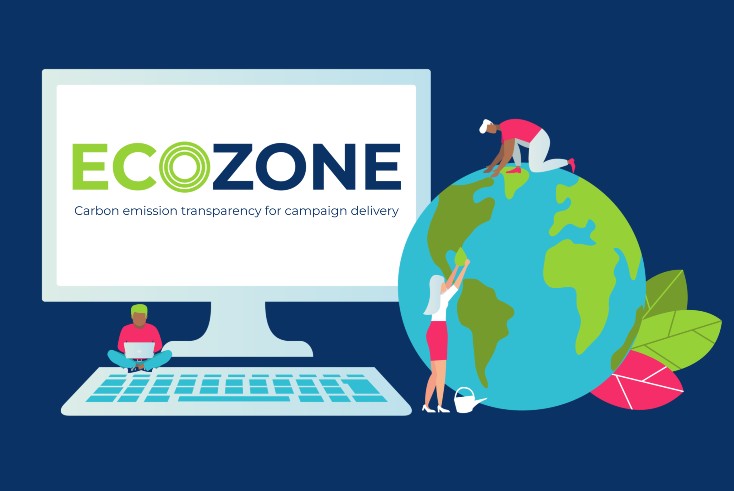Ozone: now you can measure carbon impact at campaign level


Ozone has launched a new initiative, called ECOzone, that will calculate the carbon footprint of campaign delivery for activity run through the platform’s ‘managed service’ capability.
Measurements will focus initially on the efficiency of Ozone’s platform in delivering premium publisher impressions to advertisers.
ECOzone will debut with a staggered rollout across Q3 2023, with a formal launch Q&A session with agency partners planned for early August.
Ozone says its ECOzone measurements are calculated using actual emissions data collected from Ozone’s cloud partners — Ozone’s primary source of CO2 raw data.
Independent environmental consultancy Green Element verified the dataset, which focuses on a weekly average figure based on the amount of CO2 used to deliver each impression, as part of a full audit it conducted of the Ozone business.
Each campaign is then factored by the weekly average figure to give a bespoke CO2 measurement for that activity.
The release is timed to coincide with Ozone’s fifth birthday. Originally launched in 2018 as The Ozone Project, the digital advertising alliance is a joint venture backed by News UK, Guardian News & Media, Telegraph Media Group, and Reach to sell display ads and pool publishers’ data at scale. This year, Mail Metro Media also joined Ozone as part of a “pilot partnership.”
The ECOzone initiative is the first stage in Ozone’s plan for carbon net-zero campaign delivery by 2030. Future initiatives will focus on “bespoke measurements” for Ozone’s Deals and Connect products, with the goal of providing a total view of emissions across Ozone’s owned platform.
Ozone’s chief strategy officer Dora Michail-Clendinnen said: “We have deliberately focused on the element of campaign delivery that we have direct control over, to provide advertisers with the reassurance that campaign delivery is as carbon efficient as possible across the premium web.”
While bid requests received by Ozone increased three-fold in 2022 amid growth in their ad platform, the company reported that improvements in engineering ensured the average CO2 per billion bid requests were reduced by 52%.
